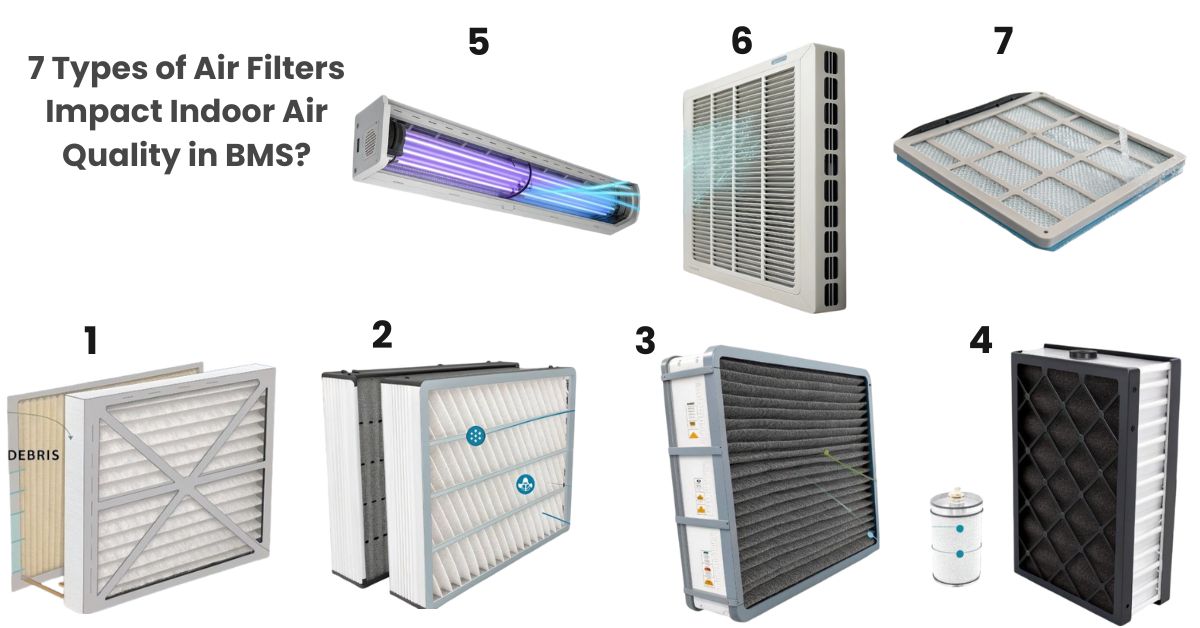BMS is critical towards building performance optimization. One of the components of this system is air filters. They control the flow of air, ensure the stable work of devices and increase energy saving.
Clean air filters decrease the pollutants circulating in the building. They attract dust, pollen, bacteria and harmful particles. Consequently, the air remains cleaner and healthy.
Above all, occupants are safeguarded with the right filtration. The population inhales cleaner air which reduces the health related risks such as allergies or respiratory issues. Air filters in BMS contribute to the safer environment in every place, including offices and hospitals.
Table of Contents
ToggleThe Role of Air Filters in BMS
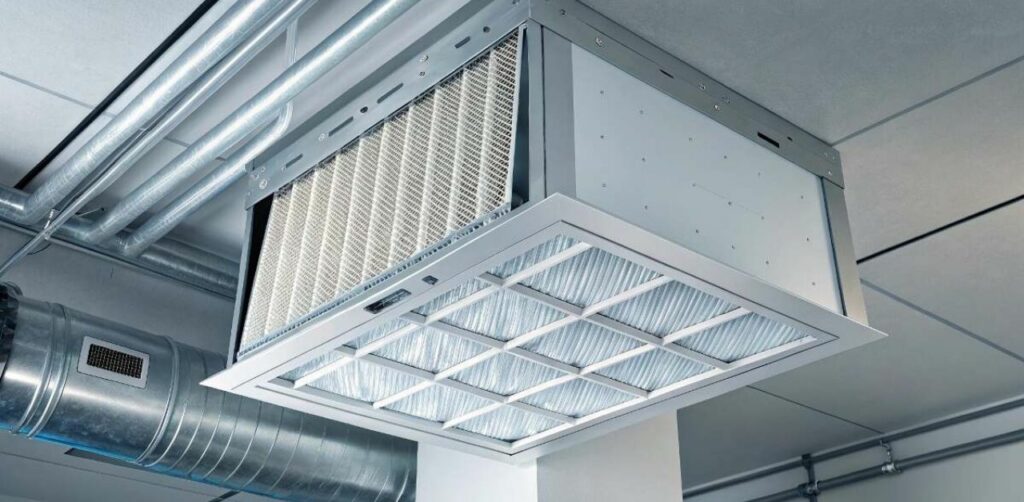
Air filters trap the pollutants which are in the air hence safeguarding the indoor air. They capture dust, pollen, mold spores and bacteria before they spread. This aids in maintaining the air quality clean and safe to all occupants. Indoor environment is enhanced by use of air filters that remove these harmful particles.
They also sustain the efficiency of the HVAC by avoiding the clogging of the system. Clean filters eliminate gathering of dirt and debris in the system. This will enable free flow of air that will put less strain on equipment. Consequently, HVAC system operates efficiently, consumes less energy and has an increased life span.
Why Indoor Air Quality Matters?
Clean air decreases health hazards such as allergy and respiratory problems. It aids in the prevention of asthma attacks, sinuses and other difficulties in breathing. Reduced pollution in the air translates to reduced illnesses and hospital visits. This makes the building healthier to all the occupants.
Good air quality increases productivity and comfort within the buildings as well. When individuals inhale clean air, they become energetic and attentive. Fresh air and comfortable temperatures allow one to avoid fatigue and stress. Consequently, employees remain efficient, and tenants have an improved experience in general.
Fiberglass Filters: Basic Protection
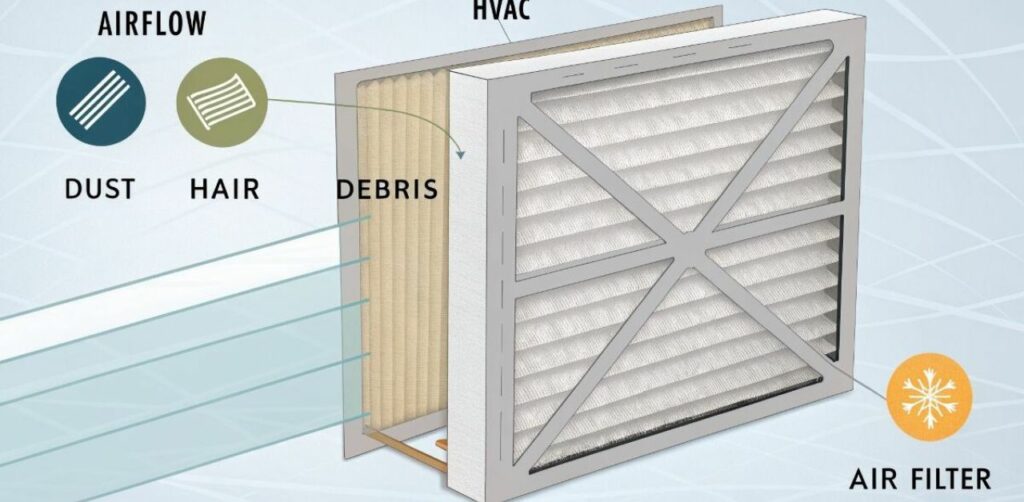
Fiberglass filters trap coarse dust particles and avoid re-circulation of the same. They, however, pass smaller pollutants such as pollen, smoke and bacteria. This reduces their capacity to clean the air completely. However, they fit well in low demand environments or short term environments. These filters are commonly found in places where air quality is not a major issue since they are cheap and disposable.
Pleated Filters: Enhanced Filtration
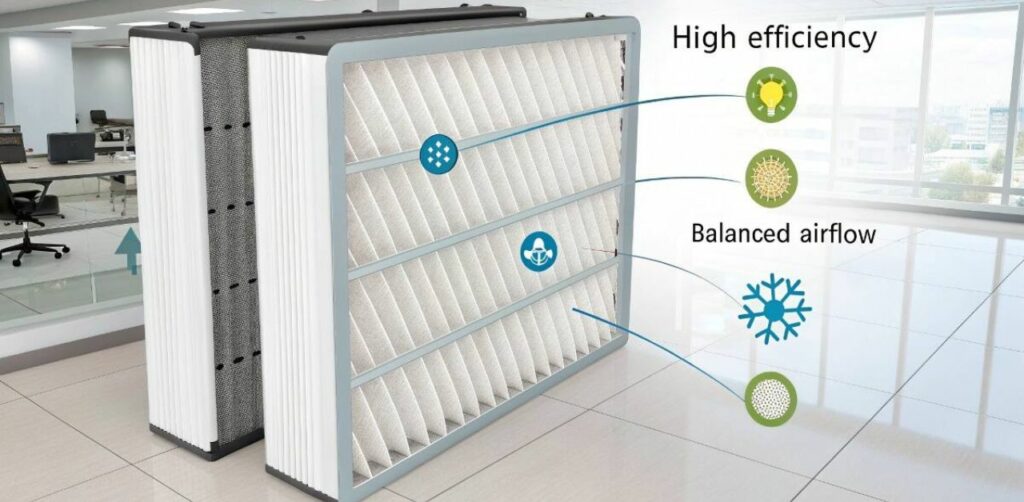
Pleated filters Holds more surface area and traps smaller particles like pollen, mold spores and dust mites. They are dense in design and hence capture more pollutants leaving the air cleaner. Meanwhile, they enhance air quality by not limiting airflow significantly. Such a balance allows keeping the efficiency of the system at a high level and ensuring more protection to the occupants of the buildings.
HEPA Filters: Maximum Efficiency
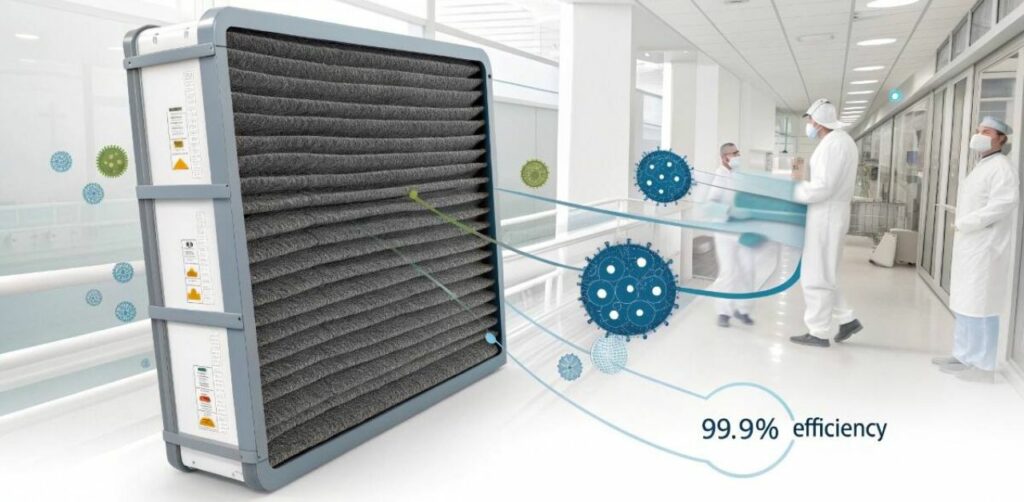
HEPA filters attract up to 99.97 percent of microscopic particles, such as dust, pollen, bacteria and viruses. They trap particles as small as pollution particles which make the air much cleaner and safer to breathe. They are required in healthcare facilities and cleanrooms because of their efficiency. In these rooms the cleanliness of the air is of paramount importance, to protect patients, personnel and sensitive instrumentation.
Activated Carbon Filters: Odor and Gas Control
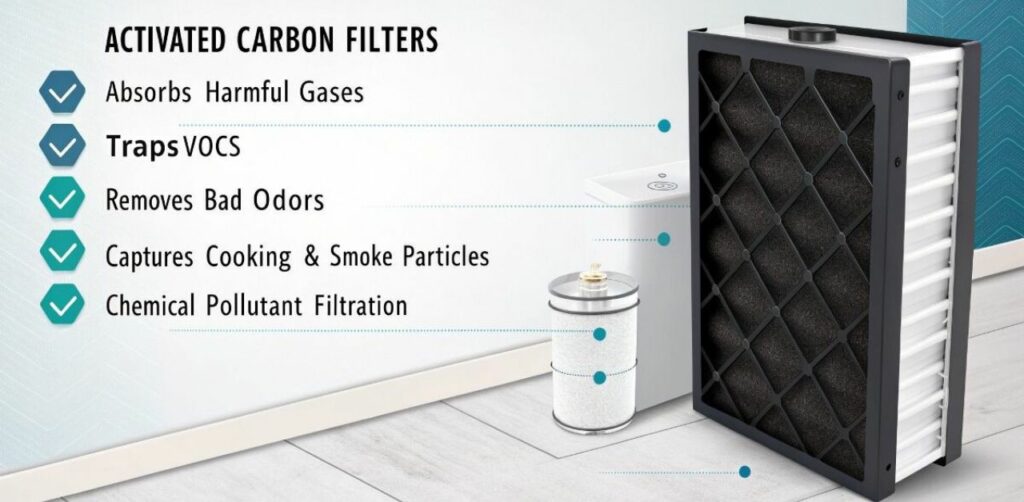
Activated carbon filters take away toxic gases, VOCs, and foul smells in the air. The chemical pollutants are trapped on their porous surface thus the air is cleaner and fresher. They are also used in combination with particle filters to offer complete purification. Whereas the particle filters trap dust and allergens, the carbon filters deal with odors and gases, which combine to improve indoor air quality.
UV Filters: Destroying Biological Contaminants
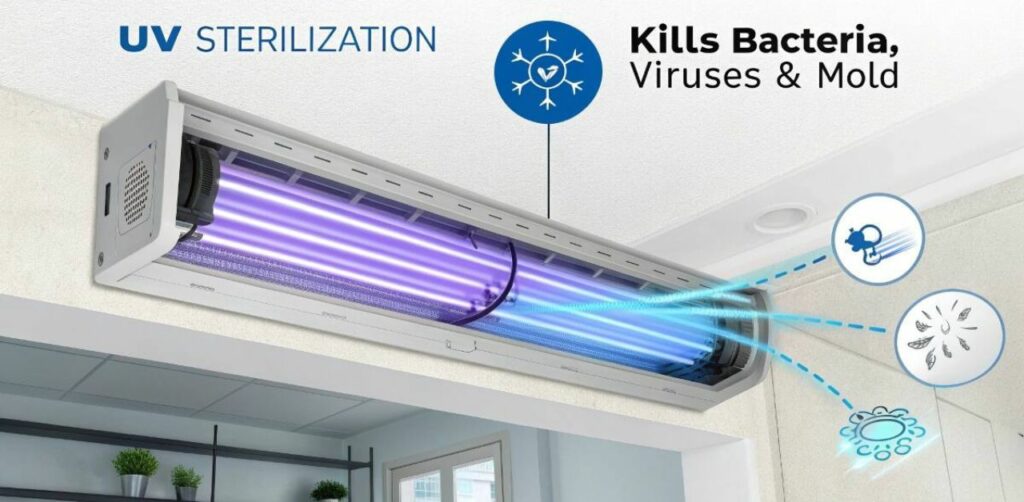
UV filters utilize ultraviolet light to eliminate bacteria, viruses and mold. The DNA of these microorganisms is broken down by the light preventing the spread of the microorganisms. This assists in making the air cleaner and healthy. Meanwhile, UV filters prohibit the development of microbes in the HVAC systems. They avoid the build-up of mold and bacteria within the equipment thereby guaranteeing the efficiency of the system and the quality of air.
Electrostatic Filters: Static Charge Filtration
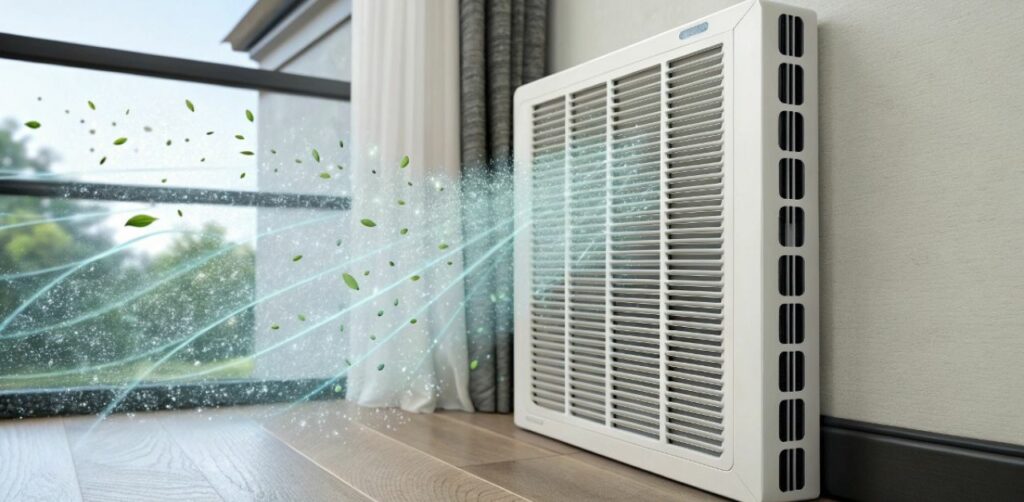
Electrostatic filters Electrostatic filters are air filters that attract and collect air particles, like dust, pollen, and pet dander with static electricity. These electrically charged fibers absorb the pollutants in the air leaving the air fresh and safe. They are also effective filters that maintain a steady flow of air. This equilibrium maintains the HVAC system in good working conditions without extra pressure.
Washable/Reusable Filters: Cost-Effective Air Cleaning
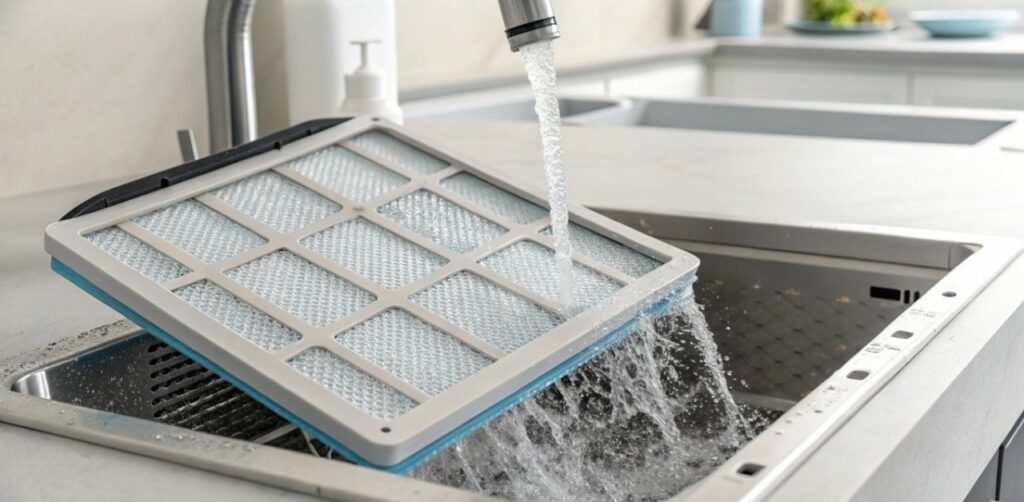
Filters are washable and reusable to make them easy to wash and reuse severally. They are efficient in that, once they have been cleaned they can be reused. This aspect reduces the maintenance cost and provides stable performance. They also lower the costs of frequent replacements over time hence they are cost effective to many buildings.
Choosing the Right Filter for Your BMS
A correct filter selection implies a balance between filtration need and system capacity and energy use. An extremely effective filter can capture more particles, but will also cause the HVAC system to work hard unless it is matched. The filter should be chosen such that it is efficient at cleaning the air, but the air flows well. This is helpful in maintaining the system performance and control the energy costs.
Also, take into consideration the particular pollutants in your setting. The air quality challenge is varied in different spaces.
For the best results, think about:
- Types of pollutants (dust, pollen, bacteria, odors and gases)
- Occupant health needs
- HVAC system design and airflow
- Maintenance and replacement cost
- Industry or building regulations
The Long-Term Impact on Indoor Air Quality
Regular filter cleaning will guarantee a permanent change in the quality of air. Filthy or blocked filters lose their capturing efficiency, and the dangerous particles are released back into the air. Routine check up and prompt replacements ensure the air is clean and safeguard the health of occupants. Clean filters also avoid accumulation of dust and debris into the system.
Adequate selection prolongs the life of HVAC and saves energy charges. As filters suit requirements of the system, airflow remains unproblematic, and equipment operates effectively. This reduces wear and tear, which means less repair and long life of the systems.
The table below shows the long-term benefits:
Action | Benefit |
Regular Maintenance | Consistent air quality |
Correct Filter Type | Better system efficiency |
Clean Filters | Lower energy consumption |
Proper Fit | Extended HVAC lifespan |
FAQ’s
What role does air filter in a BMS play in enhancing indoor air quality?
BMS air filters eliminate pollutants, manage smells and keep HVAC systems operating effectively, making the air inside buildings cleaner.
What is the suitable air filter in high risk areas such as hospitals?
The most effective type of filters is HEPA, which catches up to 99.97 percent of small particles, such as bacteria and viruses.
Do activated carbon filters get rid of odors and gases?
The answer is yes, they do soak up harmful gases, volatile organic compounds (VOCs) and bad smells and make the air in general smell better.
Conclusion
In order to have clean and safe indoor air, the right air filter is chosen. All the types have their own advantages, such as trapping dust, eliminating odors and killing germs. Properly serviced filter is able to safeguard the health of people and ensure the air is fresh on a daily basis.
In the meantime, the proper selection of filters facilitates the system efficiency. It reduces energy cost, repair, and lifespan of the HVAC equipment. By having the appropriate filters, buildings remain comfortable, healthy, and affordable even in the years to come.

